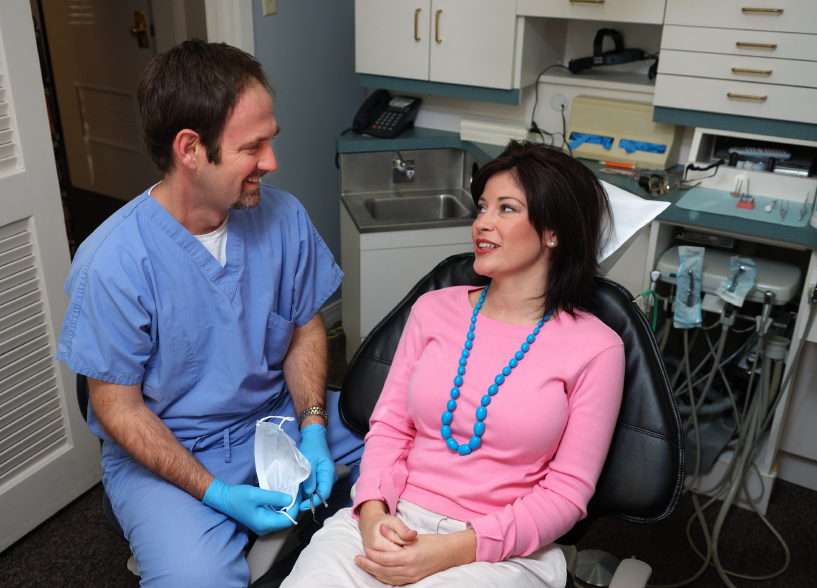
(This content is being used for illustrative purposes only; any person depicted in the content is a model)
Author: Shernide Delva
Your employer may not be the only one questioning your illegal drug use. Now you could get “drilled” about it by your dentist. A new survey revealed that three out of four U.S dentists ask their patients about their illegal drug use.
One reason is the dental problems that long term drug use can cause such as tooth loss, tooth wear, gum disease and tooth decay, researchers explained. Drug history is helpful for dentists in treating patients effectively.
Another reason is that dentists are the second-largest group of prescribers for opioids such as Vicodin, OxyContin, and Percocet.
In the study, lead author Carrigan Parish, an associate research scientist from Columbia University Mailman School of Public Health in New York City, explained further:
“Because dental care routinely involves treating pain and emergencies, dentists may encounter substance-seeking patients who complain of pain more severe than anticipated based on the nature of their dental condition, who report lost prescriptions for opioid pain medications, or who only seek dental treatment sporadically,”
- Over 1,200 dentists nationwide responded to the survey.
- More than half of dentists believe they should conduct drug screening of new patients.
- The survey found that older dentists were less likely to screen for drug use.
- Younger dentists under 53 years old were more likely to feel it was their role to conduct drug screenings.
- Female respondents were more likely than males to agree that dentists should screen for illegal drug use
“There are a sizable number of people whose visit to a dentist represents their sole interaction with the health care system, highlighting the significance of the dental visit as a key opportunity to identify substance use disorders,” Parish said.
Dentists may require extra training to increase their awareness and knowledge of substance abuse, Parish said. It still is also unclear how patients feel about these screenings.
“While surveys have shown that patients are amenable to receiving medical screenings by dentists ‘chair-side’ for such conditions as HIV, heart disease, and diabetes, further studies directly addressing patient attitudes on substance misuse screening are key in determining patients’ acceptance of such services,” Parish said.
With the opioid epidemic spreading throughout the country, anything to cut down on the addiction crisis can help lives. Dentists rarely get the blame for the prescription drug abuse problem. I mean, you almost never hear terms like “dentist shopping” or “dental pill mills?” Dentists rarely are brought up even though they prescribe these strong pain medications on a regular basis.
The question remains on how to combat the drug abuse without hurting those patients who actually need the medications the most: Patients suffering from real dental pain. It is a complex problem and it is difficult for dentists to do anything about it.
One suggestion is to take advantage of “take back” days sponsored by the Drug Enforcement Administration to safely get rid of excess drugs. Flushing unused drugs is not recommended due to environmental contamination.
The next “take back” day is September 26. There are plenty of locations on the website where you can drop off your unused prescriptions.
Do you think dentists are taking a step in the right direction? Remember, prescription medications should be used for their medical purposes only. If you find yourself falling into the cycle of addiction, remember you are not alone. If you or someone you love is struggling with substance abuse or addiction, please call toll-free 1-800-951-6135